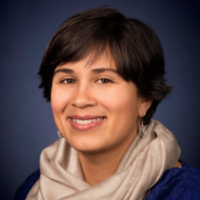Climate change affects us all… but some more than others: the importance of addressing climate impacts through an intersectional lens
January 23, 2019
Coming from a tropical country, climate change was always a very real and immediate concern for me; but, I was always intimidated by the magnitude of it – where to even begin? Yet, my main concern was never so much with the causes or technicalities of climate change (much to my father’s chagrin, I never wanted to become an engineer), but rather, how people would be impacted by it. Recent events have made it painfully clear that the people most affected by climate impacts also fit into the category of “traditionally” vulnerable or “marginalized” groups, who have limited access to resources. Moreover, the people bearing the brunt of climate change, or “frontline communities”, are also those who both contributed the least to climate change and who are least equipped or able to deal with its effects. It is also important to note that climate change is also experienced by people within a very specific socioeconomic and political context – climate change is a complex issue, yet it doesn’t happen in isolation. However, these complexities are often not reflected in policies that are enacted at local levels, and there is a disconnect between what people experience, research done on climate change, and how policymakers act. Thus, most of my work in graduate school and through this fellowship has been focused on working to address the impacts of climate change, using an intersectional lens and analyzing the ways that climate change is experienced within a broader set of factors.
In graduate school, my work focused on better understanding how vulnerability is experienced within the context of climate change to better inform policy about local needs. As a result, I spent most of my summer in 2017, living in coastal Ecuador in a large port town that connects villages upstream the Cayapas River with the rest of the coastal communities. My work involved talking with community members from upstream villages (that are only accessible by boat) about their lived experiences and perceptions of what threatens and contributes to their well-being the most. Going in, the objective was to find out how important climate-related events (prompted by climate change) were to local well-being, relative to other factors. Climate change is already having a very real (albeit indirect) impact on local life, because most people rely on their plot of land and the river to make a living. A person’s daily life in this part of the world is very much connected to their surroundings, thus any changes in local weather conditions will have a significant impact. Yet, unsurprisingly, in a place where flooding and rains are a regular occurrence, clean water and sanitation are non-existent, natural resource extraction is rampant, and every day is a struggle to put food on the table, climate was not listed as a priority. While seemingly obvious, what I hoped to highlight through this work is the fact that local and community needs are not one-dimensional and that they aren’t always reflected in policies that dictate what work should be done and where resources are allocated.
Following this line of thought, when applying to the Environmental Fellows Program (EFP), I looked specifically for organizations that applied an intersectional problem-solving approach to climate-related impacts. Fortunately, thanks to the EFP, I was placed at a local, non-profit climate justice organization called UPROSE, located in an urban neighborhood, called Sunset Park, in Brooklyn, New York. Sunset Park is a large, thriving immigrant community that has been historically overlooked by elitist and racist policies. The community, historically a working, blue-collar community, faces a number of pressures ranging from high air pollution levels to growing pressure from development companies that are displacing long-time residents and making daily life increasingly difficult. Yet, there is a growing sense of urgency within the community that the impacts from climate change are only going to get worse. In fact, my work at UPROSE was largely focused on organizing a climate-resiliency and emergency preparedness initiative called the Block Captain Initiative. The initiative works on block-by-block basis, emphasizes bottom-up organizing, and works off local knowledge to address impending climate-related disasters and reinforces community interdependence. The idea for this project arose following Superstorm Sandy in 2012, when many people experienced black-outs, flooding, water shutoffs, and emergency response was slow. Neighbors came together in a meeting facilitated by UPROSE to talk about what had happened and how they might work to prevent similar situations in the future. The initiative is about empowering community members to assess their needs and propose and work on solutions to address those needs, yet, it also takes into consideration that climate change is one of many pressing issues that the community is facing.
Despite the stark contrast between the small, rural Ecuadorian communities that I worked with last year and the large, sprawling New York City neighborhood, both are burdened by deteriorating environments, external economic pressures, and the threat of climate change. It is clear that climate change disproportionately impacts those communities already burdened by a multitude of other issues; thus, to effectively address it not only requires a broad, intersectional lens, but also making sure that community members both get a seat at the decision-making table and also lead the work towards greater climate adaptability and resiliency.
About Helen Gutierrez
